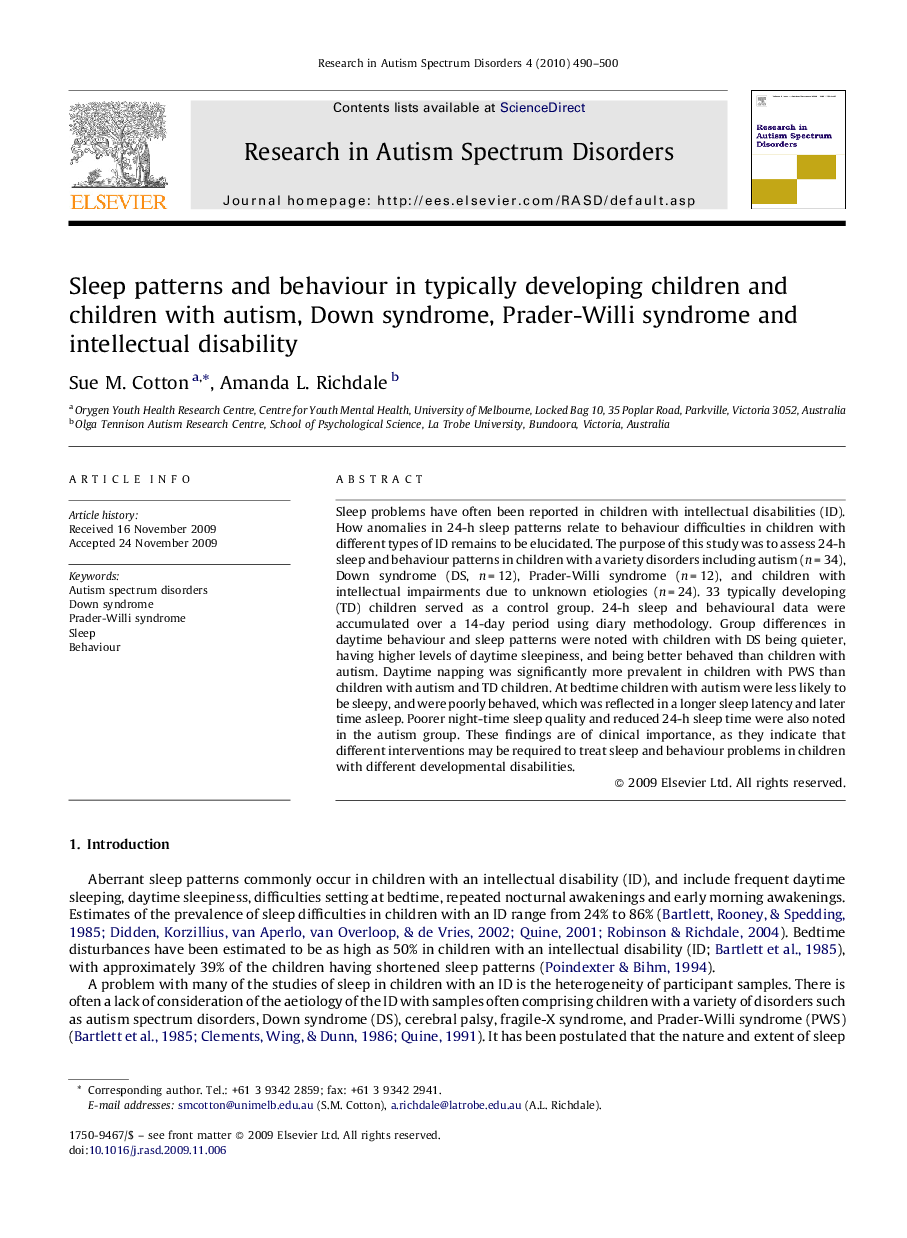| Article ID | Journal | Published Year | Pages | File Type |
|---|---|---|---|---|
| 370381 | Research in Autism Spectrum Disorders | 2010 | 11 Pages |
Sleep problems have often been reported in children with intellectual disabilities (ID). How anomalies in 24-h sleep patterns relate to behaviour difficulties in children with different types of ID remains to be elucidated. The purpose of this study was to assess 24-h sleep and behaviour patterns in children with a variety disorders including autism (n = 34), Down syndrome (DS, n = 12), Prader-Willi syndrome (n = 12), and children with intellectual impairments due to unknown etiologies (n = 24). 33 typically developing (TD) children served as a control group. 24-h sleep and behavioural data were accumulated over a 14-day period using diary methodology. Group differences in daytime behaviour and sleep patterns were noted with children with DS being quieter, having higher levels of daytime sleepiness, and being better behaved than children with autism. Daytime napping was significantly more prevalent in children with PWS than children with autism and TD children. At bedtime children with autism were less likely to be sleepy, and were poorly behaved, which was reflected in a longer sleep latency and later time asleep. Poorer night-time sleep quality and reduced 24-h sleep time were also noted in the autism group. These findings are of clinical importance, as they indicate that different interventions may be required to treat sleep and behaviour problems in children with different developmental disabilities.
